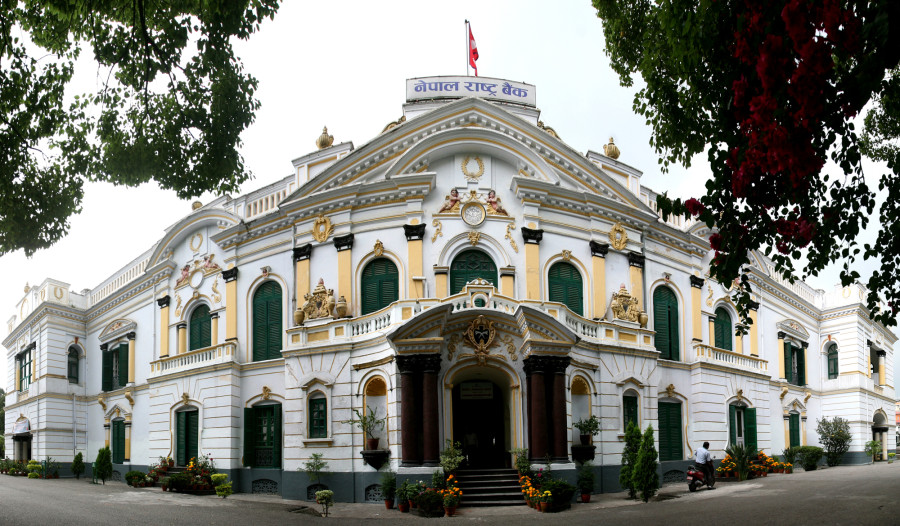Money
Banks are required to maintain databases on high-profile persons but bankers say government agencies do not cooperate
A centralised database of high-profile persons could plug loopholes in the system.
Prithvi Man Shrestha
Although the central bank has instructed all banks to maintain a database of high-profile persons and persons with “questionable backgrounds” in an attempt to control money laundering, bankers say that they are not getting enough support from government agencies.
Various government agencies and state bodies maintain separate lists of high-profile persons, also known as “politically exposed” persons, but bankers say they are struggling to gather data from all of them.
“There’s a lack of cooperation from government agencies in accessing these databases,” said Gyanendra Dhungana, president of the Nepal Bankers’ Association, an organisation of chief executive officers from the country’s 28 commercial banks.
According to the anti-money laundering law, the president, vice-president, prime minister, chief justice, speaker and deputy speaker of both the federal parliament and provincial assemblies, provincial governors, chief ministers, ministers from both federal and provincial governments, federal Parliament and provincial assembly members, officials of constitutional bodies, bureaucrats, judges of the High Courts, national leaders of political parties, chief and deputy chiefs of District Coordination Committees, chiefs and deputy chiefs of local governments, and senior officials of state-owned enterprises are considered high-profile persons.
High-profile persons are considered risky because they command power, could potentially engage in corruption, and have the capability of launder the assets amassed through corruption or other illegal activities.
The Financial Action Task Force (FATF), the global anti-money laundering body, has thus set a standard under which additional vigilance should be maintained over the activities of high-profile persons.
“The question is who provides data on high-profile people because no single government agency has records of them all, including when they get appointed or recruited and when they resign or retire,” said Dhungana, who is also the chief executive officer of Nepal Bangladesh Bank. “Banks maintain their own databases, but these are incomplete. Some banks may miss out on some persons.”
Many banks procure their database from private companies who maintain such databases. Bankers say they have to rely on private firms for data as government agencies have not been cooperative.
“Such firms assure the accuracy of their data, but questions remain about their authenticity as they are not government entities,” said Anil Shah, chief executive officer of Nabil Bank.
Besides domestic high-profile persons, banks are also required to maintain a database of international high-profile persons, including those who work in international agencies, both Nepalis and foreigners.
People with criminal backgrounds, those who the banks consider prone to corruption, those involved in the sale and purchase of commodities such as gold, and those dealing in large cash transactions are some of the other categories of persons who face enhanced scrutiny from the banks.
According to Dhungana, there has been a discussion at the Nepal Bankers’ Association about them accessing data from the Credit Information Bureau of Nepal, which maintains a database of loan borrowers.
“But formal talks with the bureau are yet to be held,” Dhungana told the Post.
According to bankers, a common platform could help reduce the risk of missing out on some high-risk persons because all banks will have access to the same list. It will also help them reduce the cost of purchasing data from different vendors.
“We can pay a certain fee to get access to a database of high-profile people, just like we get the credit history of certain borrowers from the bureau,” said Shah.
Obtaining the credit history of borrowers enables the banks to decide whether they qualify for certain loans.




 9.83°C Kathmandu
9.83°C Kathmandu















